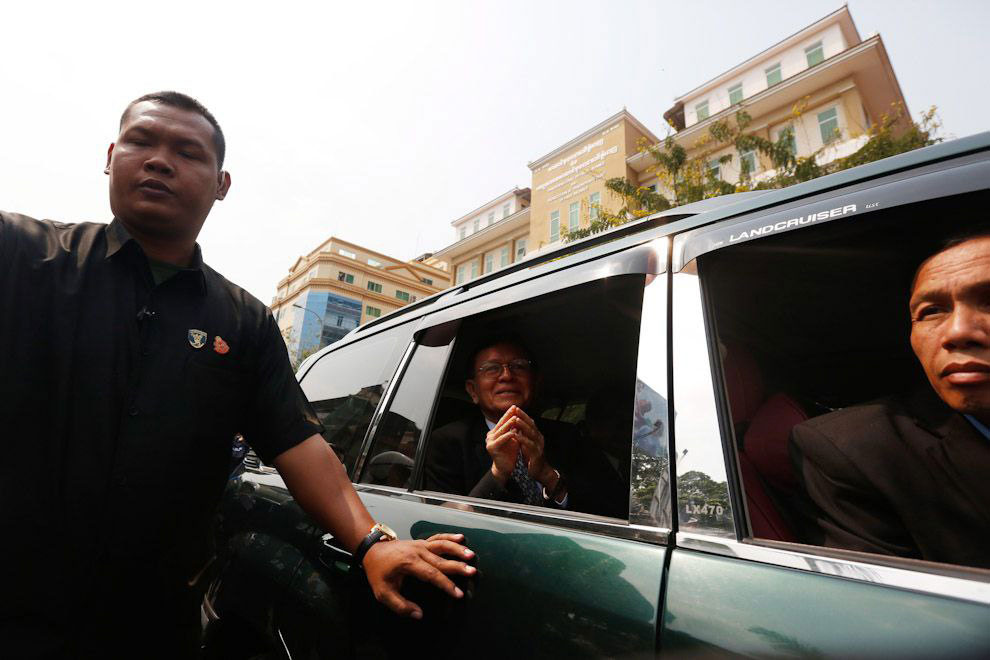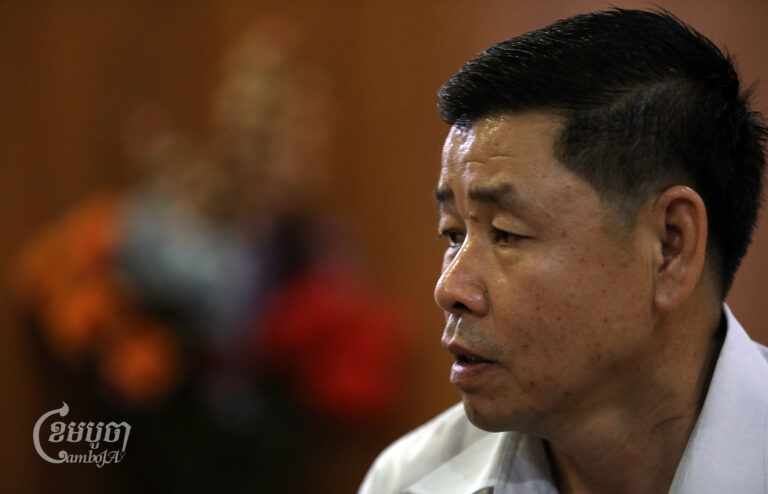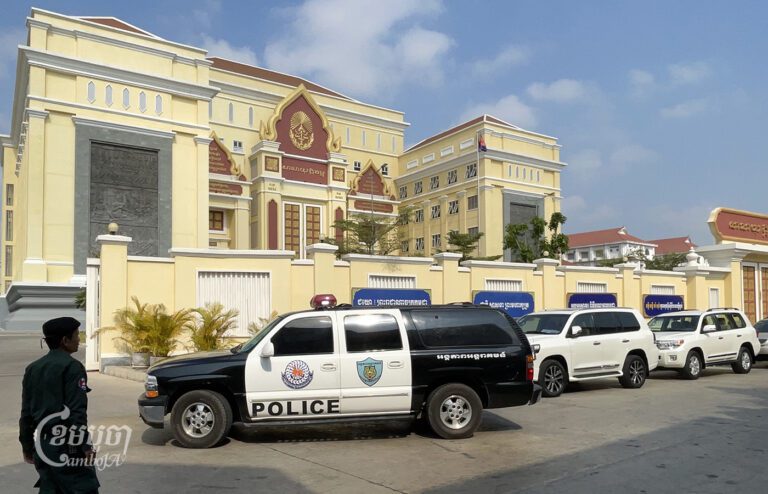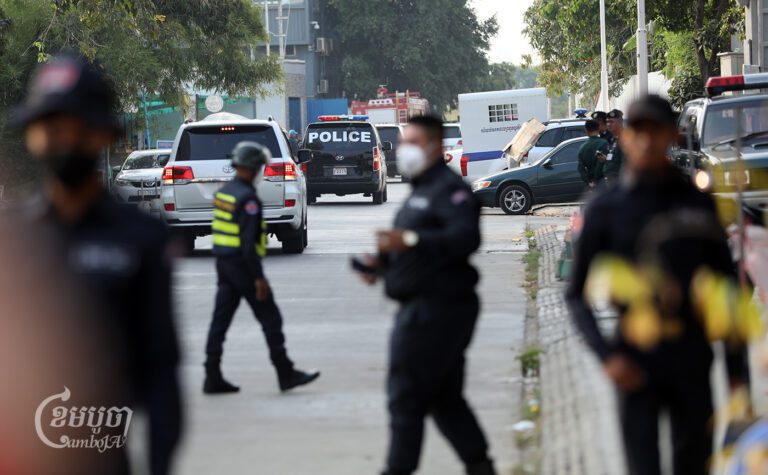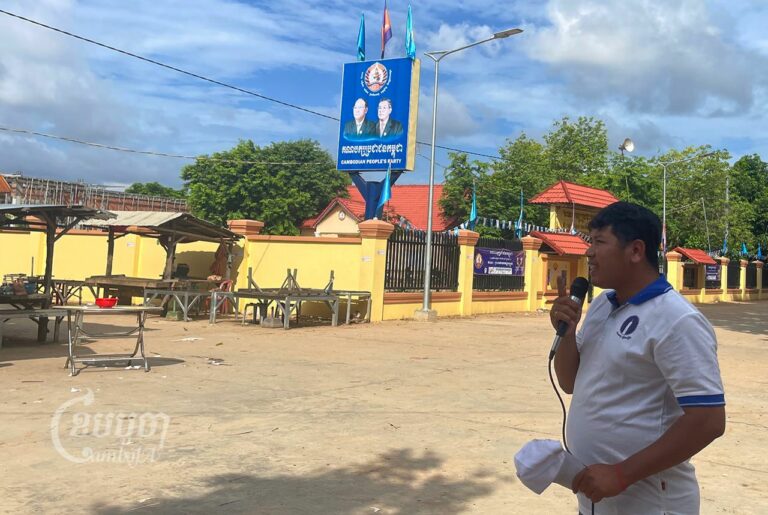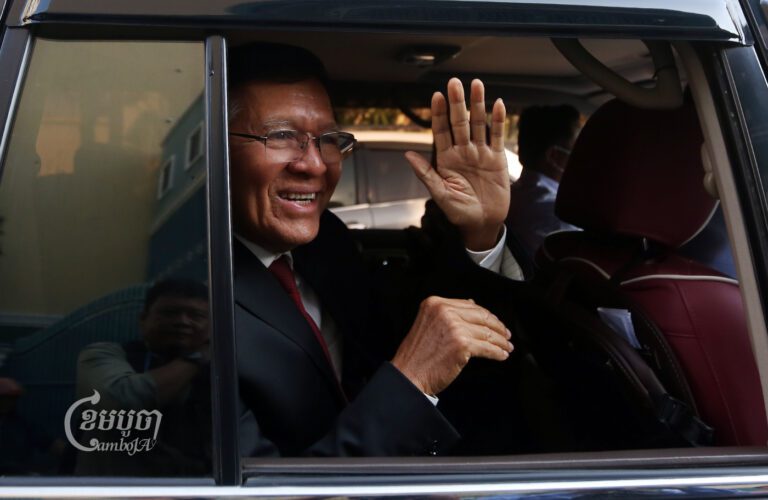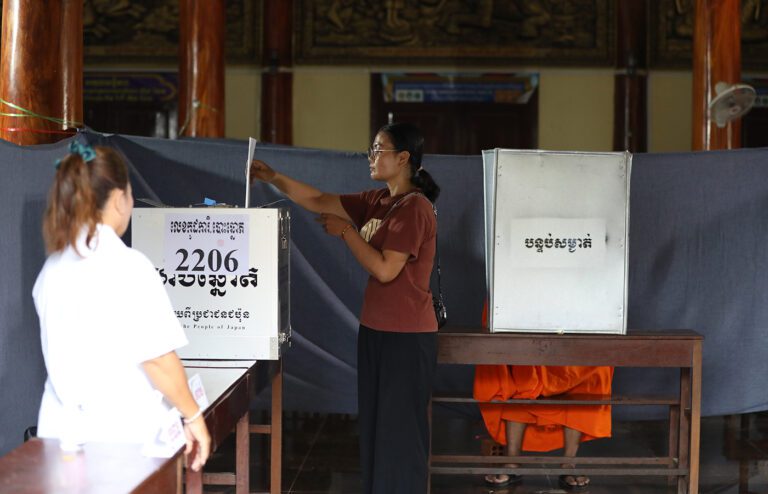Former opposition leader Kem Sokha told the court on Thursday that he did not bring foreigners to invade Cambodia’s territory, nor did he make Cambodia lose any land, according to his lawyers.
Therefore, the charge of conspiring with a foreign power should not apply, he argued, according to the lawyers.
Under the Criminal Code, the charge relates to fomenting hostilities and acts of aggression against Cambodia.
Speaking with journalists outside the Phnom Penh Municipal Court, defense lawyer Meng Sopheary said Sokha was again asked about his activities from 1993 to 2007.
“He said that he did not bring foreigners to make a dispute, and did not bring them to invade Cambodia’s territory or make Cambodia lose land,” Sopheary said.
The second day of the trial concluded after only a morning hearing.
Sokha was arrested in September 2017 amid government pressure on the political opposition, NGOs and news media, and accused of working with the U.S. to topple the government. He faces up to 30 years in prison if found guilty of the treason charge against him.
Sopheary continued that Sokha was questioned about the two-minute video of a speech he made in 2013 that is the basis for the charge against him.
He said the video had been edited to change the meaning of his words, according to Sopheary.
Sokha also confirmed his past positions in the National Assembly, Senate and the Cambodian Center for Human Rights (CCHR). He argued that during the period of his supposed crimes — between 1993 and 2007 — the treason charge against him did not even exist in Cambodian law. It was added in the 2009 Criminal Code.
“My client is a democrat and he is clean,” Sopheary said.
The judges decided the court would play the full hourlong video of his speech at some point during the trial, she added. It would be sometime after next week to give lawyers enough time to prepare, she said.
Ky Tech, a lawyer representing the government, said shortening video was normal, similar to the way journalists took only snippets of his words to include in news articles. Saying that the video was edited to be false was wrong, he said.
“It is not edited but it is a summary video,” Tech said.
Tech added that there were 27 witnesses in the case and none had yet been questioned.
Phauk Sophin, 47, a land activist in Phnom Penh, was outside the courthouse on Thursday in support of Sokha.
“I think that this is injustice for Kem Sokha … because he is innocent, so the court should be drop the charge against him,” she said. “He is a good person who helps Cambodian people and society.”
Sophin contrasted Sokha to government officials who grabbed land from the people, and said the courts were going after the wrong people.
“Please, Prime Minister Hun Sen, reconsider this issue, because Kem Sokha just helps the people — why was he charged with treason?”
Meanwhile, a joint statement from 82 media and civil society groups, including Licadho, Adhoc, CCHR and CamboJA, called for rights monitors and journalists to be given access to the trial proceedings.
“We call on the court to allow access for family, independent media outlets and civil society groups as well as broadcasting the court proceedings to ensure that this trial takes place in an open and transparent manner with the full participation of the public,” the statement said.
It said that no independent media outlet or NGO has been given a pass to attend the trial, which is slated to continue for up to three months. Two journalists from independent media outlets who managed to report on the first morning of the trial were later barred from returning to the courtroom.


